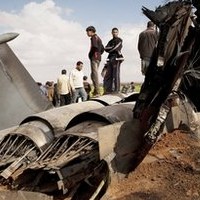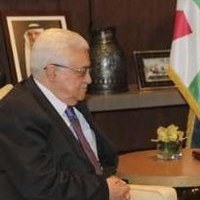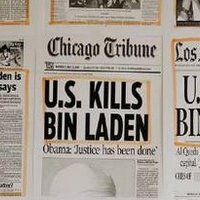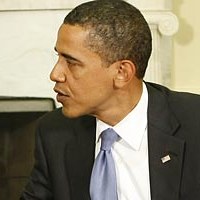![]()
Woensdag, 19 Januari 2011 | Bewerkt door Crethi Plethi
WikiLeaks: Tweede Kamer Moeilijk te Overtuigen voor Nieuwe Missie
Document: Ambtsbericht van de Amerikaanse ambassade in Den Haag signaleert dat Nederlandse diplomaten unaniem melden dat het lastig is om de verlenging van de Nederlandse missie in Afghanistan aan de Tweede Kamer te verkopen, maar dat het zo goed als zeker is dat Nederland na 2010 iets in Afghanistan blijft doen.
Bron: WikiLeaks/NOS
224468
9/10/2009 14:35
09THEHAGUE543
“Embassy The Hague”
SECRET
09THEHAGUE419|09THEHAGUE514
“VZCZCXRO2469
PP RUEHDBU RUEHPW RUEHSL
DE RUEHTC #0543/01 2531435
ZNY SSSSS ZZH
P 101435Z SEP 09
FM AMEMBASSY THE HAGUE
TO RUEHC/SECSTATE WASHDC PRIORITY 3229
INFO RUCNAFG/AFGHANISTAN COLLECTIVE PRIORITY
RUEHZG/NATO EU COLLECTIVE PRIORITY
RUEHBY/AMEMBASSY CANBERRA PRIORITY 2833
RUEHBUL/AMEMBASSY KABUL PRIORITY 0416
RUEHOT/AMEMBASSY OTTAWA PRIORITY 5256
RUEAIIA/CIA WASHDC PRIORITY
RUEKJCS/SECDEF WASHINGTON DC PRIORITY
RUEKJCS/CJCS WASHDC PRIORITY
RHEHAAA/WHITE HOUSE WASHDC PRIORITY
RHEHNSC/NSC WASHDC PRIORITY
RHMFISS/HQ USEUCOM VAIHINGEN GE PRIORITY
RHMFISS/HQ USCENTCOM MACDILL AFB FL PRIORITY
RUEKJCS/DIA WASHDC PRIORITY”“S E C R E T SECTION 01 OF 05 THE HAGUE 000543
SIPDIS
E.O. 12958: DECL: 9/9/2019
TAGS: PREL, PGOV, NATO, NL, AF
SUBJECT: AMBASSADOR DAALDER PRESSES DUTCH TO STAY THE
COURSE IN AFGHANISTAN
REF: A. THE HAGUE 514
B. THE HAGUE 419Classified By: Ambassador Daalder for reasons 1.5(b,d)
1. (C) SUMMARY: U.S. Permanent Representative to NATO,
Ambassador Ivo Daalder, argued for the extension of the
Netherlands, military deployment and aid to Afghanistan
beyond 2010 during high-level meetings, a speech, press
interviews, and a reception in The Hague on September 3,
2009. This cable covers conversations with Development
Minister Koenders (paragraphs 2 – 8), FM Verhagen (paragraphs
9 – 13), and senior foreign policy officials (paragraphs 14 –
24). Dutch officials uniformly responded that selling an
extended military deployment to the Dutch parliament will be
difficult, but that some Dutch involvement in Afghanistan
past 2010 is almost certain. Daalder also exchanged views
with the Dutch on the NATO strategic concept (paragraphs 13,
24). Paragraph 25 summarizes Dutch participation and
reactions at the speech and reception. END SUMMARY.—————————–
Development Minister Koenders
—————————–2. (U) September 3, 2009; Dutch Foreign Ministry; The Hague,
Netherlands.3. (U) Participants:
United States
————-Ambassador Hartog Levin
Ambassador Daalder
Jennifer Davis, U.S. Mission to NATO
Eric Falls, Embassy The HagueNetherlands
———–Bert Koenders, Minister for Development Cooperation
Ms. Joke Brandt, MFA DG for Development Cooperation
Ms. Godie van de Paal, MFA Task Force Uruzgan4. (SBU) Ambassador Daalder emphasized President Obama,s
commitment to success in Afghanistan through cooperative
effort with Allies. The new U.S. strategy has two key
themes, he said. First, it is more narrowly defined to
ensure it is tied to our core interests and to ensure it is
achievable. Second, the U.S. is boosting support for the
strategy through regional cooperation, the &3D8 approach of
defense, diplomacy, and development, and through rapid
build-up of Afghan security forces. Daalder also emphasized
our mission in Afghanistan is a combined effort — forty
percent of the troops in ISAF, as well as forty percent of
our casualties, are from our non-U.S. Allies.5. (C) Ambassador Daalder explained that we hope the Dutch
will stay in Afghanistan as we value their expertise. He
added that we understand that the number of Dutch troops may
decline after 2010. Nonetheless, he said we believe there
are two key messages that may help convince the Dutch public
and parliament to support an extension of the Dutch mission.
First, the new U.S. president is extremely popular in Europe
and that popularity might result in deeper support for the
mission in Afghanistan. Second, the United States depends on
cooperation of important Allies like the Netherlands, which
has taken a real leadership role in development efforts and
relationship-building in Afghanistan.6. (C) Koenders responded with a review of previous Dutch
decisions on Afghanistan and an explanation of the current
political situation. The first Dutch deployment was a
Qpolitical situation. The first Dutch deployment was a
&sensitive8 decision for the Labor party four years ago.
(Background: Koenders is from the Labor party. The
Netherlands, current governing coalition includes the
Christian Democrats, the Christian Union, and the Labor
party, which is the most skeptical member of the coalition
regarding Afghanistan. See reftel A, B. End Background.)
&I supported the decision, but it was difficult,8 he said.THE HAGUE 00000543 002 OF 005
The Labor party required a development component to the
mission, the &soft approach,8 though he &didn,t think it
was soft,8 and he knew troops &would be killed.8 After
intensive parliamentary discussions, the party agreed to a
two-year deployment, until 2008. The decision to extend the
deployment until 2010 was also difficult, with Labor and
other parties expressing significant concerns about
burden-sharing. The Labor Party was &unhappy8 with the
final decision.7. (C) Looking ahead, Koenders said the Dutch would continue
development efforts in Uruzgan — the Dutch leadership is
civilian and the Dutch have been successful. However, the
government,s credibility is at stake with any military
redeployment. The government will decide whether the
military will &leave completely8 or &just leave Uruzgan.8
To make the case to the Labor party, the Dutch parliament,
and the Dutch people, Koenders said it would be helpful to
show greater burden sharing and more collaboration on
development aid. President Obama and the new U.S.
Afghanistan strategy are also helpful elements, he added.
&The picture has changed completely.8 In addition, there
should be &no mission creep for ISAF8 and UNAMA needs a
larger role. On selling the new strategy, Koenders said the
Dutch people would need to see some element of success and a
realistic strategy with a final goal that we can achieve.
Koenders wondered whether it made sense for the Netherlands
to lead on aid coordination, given its &small8
contributions relative to the United States. However, he
said it would be worthwhile to follow up on his good
discussions with the previous USAID director, particularly on
the disorganized effort in Pakistan.8. (C) Daalder said that President Obama agrees we need to
establish a realistic exit goal by shifting security to
Afghanistan itself and show some real progress on the ground
within 12-18 months in order to sustain political support.
He added we will work on follow-on meetings about development
cooperation.———–
FM Verhagen
———–9. (U) September 3, 2009; Dutch Foreign Ministry; The Hague,
Netherlands.10. (U) Participants:
United States
————-Ambassador Hartog Levin
Ambassador Daalder
Jennifer Davis, U.S. Mission to NATO
Eric Falls, Embassy The HagueNetherlands
———–Maxime Verhagen, Foreign Minister
Mr. Marcel De Vink, Private Secretary to the Minister
Mr. Maarten Boef, Head of MFA Task Force Uruzgan11. (C) Daalder emphasized the importance of the
Netherlands, decision on Afghanistan: if the Netherlands
pulls out, he said, we will not be able to convince Canada to
reverse its withdrawal decision and we could then lose the UK
in a &domino effect.8 The USG wants to help the Dutch
government support an extension of Dutch troops, although
Daalder said &we won,t tell you what to do,8 knowing that
public pressure from the U.S. would be self-defeating.
Daalder added we understand the Dutch must withdraw as &lead
nation8 in Uruzgan, although with the new ISAF command
Qnation8 in Uruzgan, although with the new ISAF command
structure that is less relevant. He said the United States
hopes the Dutch will maintain troops in the &four figure8
level, including enablers, F-16s, and medical units, adding
that lower profile deployments might be helpful in making the
case to the public. In addition, he said we are making the
shift from a direct security role to partnering with the
Afghan National Army (ANA). President Obama,s popularityTHE HAGUE 00000543 003 OF 005
and our new strategy are also key arguments.
12. (C) Verhagen responded, &I am ready to defend a new
decision8 on the Netherlands, troop deployment, given the
new situation in Afghanistan, the new U.S. president, the new
U.S. strategy in Afghanistan, broader participation by
Allies, and the Netherlands, involvement at the G20.
However, he said, these arguments are not sufficient.
Verhagen said the Dutch government won the vote in parliament
by setting a 2010 timetable for pull-out, and needed to show
reduced corruption in Afghanistan, better coordination of
aid, and a greater role for German and French troops.
Greater contributions from Allies like France and Germany are
key for winning votes from the Liberal party (VVD), he
explained. Verhagen emphasized that the United States should
&invest in the VVD8 and VVD leaders such as Mark Rutte.
The most recent meeting with VVD leaders regarding Uruzgan
&was not positive.8 (Background: The VVD, or Liberal party,
is in the opposition but nonetheless considered essential in
supporting an extension, as Dutch governments need to win
support of a broad coalition for military deployments. End
background.)13. (S) Daalder concluded with a review of upcoming
discussions on NATO,s &strategic concept,8 being headed by
former Secretary of State Albright. The group of experts
should discuss all issues responsibly, he said; in the past
some Allies have hesitated to work on difficult issues.
Verhagen welcomed Daalder,s suggestion, noting that a
discussion of Article 5 and &out of area8 initiatives would
be key. Verhagen said he supports the German proposal to
include disarmament efforts as part of the discussion and
said he has blocked internal Dutch discussions on the
presence of nuclear weapons in the Netherlands because that
is a matter for NATO to consider. However, Verhagen said the
Netherlands is open to frank NATO discussions and is sending
a delegation to Washington to discuss nuclear posture (Note:
MOD Policy Director General Lo Casteleijn will lead the
delegation on September 9. End note.) Daalder thanked
Verhagen and emphasized that Allied agreements on nuclear
weapons in Europe would be indispensable to good
transatlantic relations and should include the &Quad,8
weapons-basing countries, and Lithuania, amongst others.———————————
Lunch with Senior Dutch Officials
———————————14. (U) September 3, 2009; Societeit de Witte; The Hague,
Netherlands.15. (U) Participants:
United States
————-Ambassador Hartog Levin
Ambassador Daalder
Captain Daniel Braswell, Defense Attache, Embassy The Hague
Jennifer Davis, U.S. Mission to NATO
Eric Falls, Embassy The HagueNetherlands
———–Mr. Karel van Oosterom, PM,s National Security Adviser
Mr. Pieter de Gooijer, MFA DG for Political Affairs
(Political Director)
Mr. Lo Casteleijn, MOD DG for Policy
Lt. Gen. F. Meulman, Deputy Chief of Defense
Mr. Robert de Groot, MFA Deputy Political Director
Mr. Henk Swarttow, MFA Director of Security Affairs
QMr. Henk Swarttow, MFA Director of Security Affairs
Ms. Erica Schouten, MFA Head of NATO Affairs
Mr. Maarten Boef, MFA Head of Uruzgan Task Force16. (C) Over lunch, Daalder met with the &Triad8 — the
leading Dutch civilian advisers to the Prime Minister,
Foreign Minister, and Minister of Defense — to emphasize the
importance of Dutch contributions in Afghanistan. Daalder
emphasized key points from his discussions with Verhagen and
Koenders (paras 4, 5, and 11 above).THE HAGUE 00000543 004 OF 005
17. (C) MFA Political Director De Gooijer said Afghanistan is
the &most pressing issue8 for the Triad and added &our job
is to help our bosses8 — six ministers — make a decision.
(Note: The six key ministers are PM Balkenende, Deputy PM and
Finance Minister Bos, Deputy PM and Minister of Youth and
Family Affairs Rouvoet, Foreign Minister Verhagen, Defense
Minister Van Middelkoop, and Development Minister Koenders.
End note.) De Gooijer explained that Dutch leaders are
heavily influenced by a clear Afghanistan strategy as well as
prospects for success, as well as Dutch domestic politics.
He said the Dutch appreciated U.S. sensitivity in letting the
Dutch make its &own decision.8 In addition, he noted the
Dutch were in a different stage of the decision-making
process than the United States: &You have rolled out a new
strategy, while we are considering a redeployment; you are
engaging in a surge, while we are looking to pull back.
We need to bridge this concept. The Dutch press will also
want to know how these results benefit the Netherlands,8 he
said.18. (C) Mr. Van Oosterom, the National Security Adviser
equivalent, welcomed President Obama,s remarks on
Afghanistan and emphasized that the United States should
avoid public pressure on the Dutch. He said while Dutch
government officials would like to see a quick decision on a
new Dutch deployment, the decision process would be complex.19. (C) MOD Policy Director Casteleijn noted there is
tremendous Dutch enthusiasm for President Obama. He
encouraged continued emphasis on development aid and a
&broad concept8 for the Afghanistan strategy. He suggested
avoiding &NATO-ization8 of the Afghanistan mission through
greater involvement by the EU, UN, and other international
organizations. Waiting 18 months for good results will be
risky for the Dutch, he added, given that some Dutch
government officials are trying now to extend the deployment
for two years. He also noted there is a perception in the
Netherlands that the Dutch have done &their fair share.8
He said promoting greater contributions from some Allies who
haven,t &punched in their weight class8 would be important
to demonstrate.20. (C) Lt. General Meulman said the Dutch military had the
capacity to support an extension beyond 2010, although it
would be difficult to continue at the same level — 1,800
troops in Afghanistan — and it would be difficult to leave
some elements like several helicopters for much longer.
Meulman also urged better coordination among ISAF, the UN,
and the GOA.21. (C) MFA Deputy Political Director De Groot added there is
significant mixing of strategies, such as counterinsurgency
and development. At the same time, he said we have seen
disappointing results in state-building and need an
overarching development strategy as well as a new Afghanistan
Compact in 2010.22. (C) Daalder noted President Obama,s strong support for
metrics to show results on the ground. He added that
McChrystal,s forthcoming assessment of troops-to-task in
QMcChrystal,s forthcoming assessment of troops-to-task in
Afghanistan may provide the Dutch government with a clearer
picture of the way forward and improve civilian and military
coordination. He said the Netherlands and Canada have been
the most thoughtful of the Allies on a comprehensive approach
in Afghanistan, so it would be particularly damaging if they
leave the coalition.23. (C) (Note: In a private discussion after lunch, De
Gooijer encouraged Daalder to ask Secretary Geithner to tell
Finance Minister Bos that the Netherlands would not have a
seat in G20 discussions but for its contributions in
Afghanistan. Bos is head of the Labor party and key to the
Dutch cabinet,s decision on Afghanistan (reftel A, B). End
Note.)24. (C) On NATO generally, Daalder thanked De Gooijer for the
choice of former Dutch Shell CEO Jeroen van der Veer as ViceTHE HAGUE 00000543 005 OF 005
Chair of Secretary Albright,s NATO Strategic Concept group
of experts. Van der Veer will bring &a breath of fresh
air,8 he said, to the discussion. Daalder added the group
should address everything, including points of strong
disagreement like nuclear weapons, Articles 4, 5, and 10 of
the NATO Treaty, and Russia. On NATO-EU cooperation, Daalder
said it was likely not productive to castigate Turkey and
Greece as the new SYG had recently done. He suggested that
to improve cooperation, NATO and the EU should consider
regular, informal meetings to focus the &transatlantic8
discussion and that Sweden,s FM Bildt could help in this
role. De Gooijer said FM Bildt could certainly help bring
Sweden into NATO, and any successor to Solana should commit
to addressing NATO-EU cooperation. Daalder flagged
Finland,s joining NATO as a future point of contention with
Russia.—————–
Speech, Reception
—————–25. (C) Ambassador Daalder spoke to a full house at the
Societeit De Witte on the afternoon of September 3. More
than 150 members of parliament, journalists, diplomats,
academics, and students attended. Responding to questions
for a half hour, Daalder explained the new U.S. strategy and
priorities in Afghanistan. In one question, former Dutch
Chief of Defense Berlijn urged the United States to pressure
the government of Afghanistan to improve its performance and
reduce corruption. The new Dutch representative to NATO,
Ambassador Majoor, urged a more integrated approach by NATO
to support development and diplomacy. On the evening of
September 3, at a well-attended reception hosted by
Ambassador Levin, Daalder also engaged a similar audience,
including the leading foreign policy or defense spokespersons
for the major political parties in parliament.GALLAGHER
“



 RSS
RSS












#WikiLeaks: #Tweede #Kamer Moeilijk te Overtuigen voor Nieuwe #Missie | #Nederland #Uruzgan http://j.mp/dQeyQ6
RT @CrethiPlethi: #WikiLeaks: #Tweede #Kamer Moeilijk te Overtuigen voor Nieuwe #Missie | #Nederland #Uruzgan http://j.mp/dQeyQ6